News
-
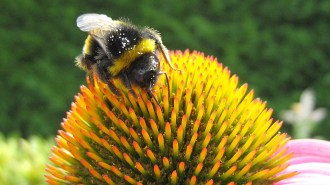 Environment
EnvironmentFlower shape and size impact bees’ chances of catching gut parasites
Bumblebees have higher chances of contracting a gut parasite from short, wide flowers than from blooms with other shapes, experiments show.
-
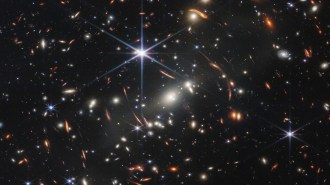 Astronomy
AstronomyHere are the James Webb Space Telescope’s stunning first pictures
President Biden revealed the NASA telescope's image of ancient galaxies whose light has been traveling 13 billion years to reach us.
-
 Physics
PhysicsWiggling metal beams offer a new way to test gravity’s strength
A new experiment aims to get a better handle on “Big G,” the poorly measured gravitational constant.
-
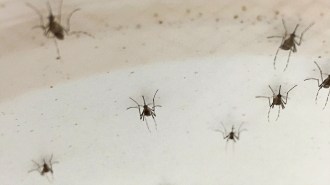 Health & Medicine
Health & MedicineThe flowery scent of a Zika or dengue infection lures mosquitoes
Mice and humans infected with dengue emit acetophenone, attracting bloodsucking mosquitoes that could then transmit the viruses to new hosts.
-
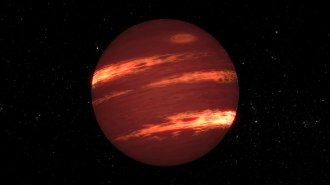 Astronomy
AstronomySand clouds are common in atmospheres of brown dwarfs
Dozens of newly examined brown dwarfs have clouds of silicates, confirming an old theory and revealing how these failed stars live.
-
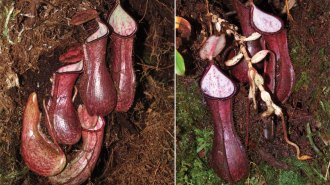 Plants
PlantsThis pitcher plant species sets its deathtraps underground
Scientists didn’t expect the carnivorous, eggplant-shaped pitchers to be sturdy enough to survive below the surface.
By Meghan Rosen -
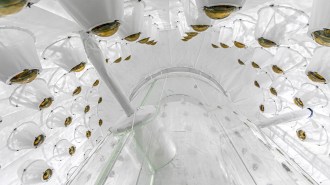 Particle Physics
Particle PhysicsA supersensitive dark matter search found no signs of the substance — yet
The LZ experiment’s first measurement raises hopes that scientists are closer than ever to finding the source of much of the universe’s mass.
-
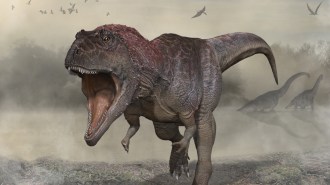 Paleontology
PaleontologyA newfound dinosaur had tiny arms before T. rex made them cool
A predecessor to Tyrannosaurus rex, Meraxes gigas had a giant head and puny but muscular arms, suggesting the limbs served some purpose.
-
 Health & Medicine
Health & MedicineCollege COVID-19 testing can reduce coronavirus deaths in local communities
Counties with colleges that did COVID-19 testing fared better against the coronavirus in fall 2020 than towns with colleges that did not test.
By Anil Oza -
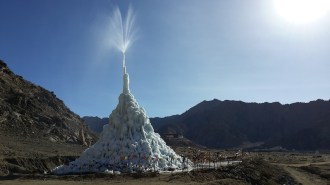 Environment
EnvironmentHow to build better ice towers for drinking water and irrigation
“Ice stupas” emerged in 2014 as a way to cope with climate change shrinking glaciers. Automation could help improve the cones’ construction.
By Nikk Ogasa -
 Psychology
PsychologyThe idea that many people grow following trauma may be a myth
Studies of posttraumatic growth are fundamentally flawed and can contribute to toxic cultural narratives, researchers say.
By Sujata Gupta -
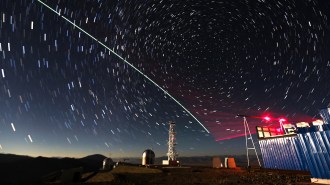 Quantum Physics
Quantum PhysicsAliens could send quantum messages to Earth, calculations suggest
Scientists are developing quantum communications networks on Earth. Aliens, if they exist, could be going further.